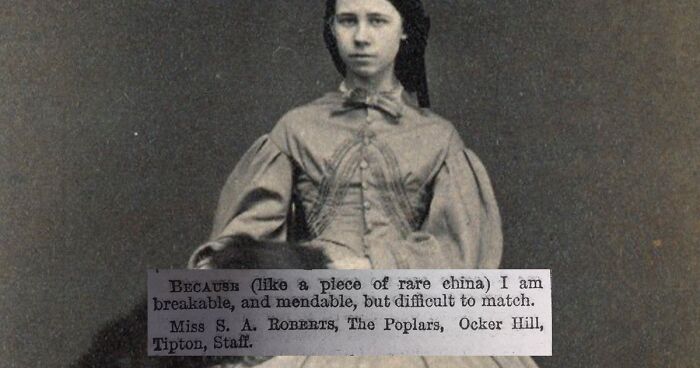
Magazine In 1889 Asked Women Why They Are Single, Receive Hilariously Badass Answers
If you think your folks give you a hard time for not marrying, try being a woman in the Victorian era. For single ladies of those times, public ridicule was the norm.
Luckily, many of them grew thick skin because of it and wouldn’t succumb to jokes about their relationship status. Instead, they fired back in a witty fashion.
While studying an 1889 edition of Tit-Bits Magazine, historian Dr. Bob Nicholson, who runs a blog called The Digital Victorianist, came across an interesting article — the publishers offered a prize to the spinster who could provide the best answer to the question why is she single, and got so many savage replies, they couldn’t pick just one.
Women in Victorian society had one main duty in life, which was to marry and serve their husband
Image credits: Library of Congress
But as this old article shows, not all of them did
Image credits: DigiVictorian
Image credits: DigiVictorian
Image credits: DigiVictorian
Image credits: DigiVictorian
We managed to get in touch with Dr. Nicholson and he was kind enough to have a little chat with us about his now-viral post was discovered.
“I’m a historian who specializes in the history of Victorian pop culture,” Dr. Nicholson told Bored Panda. “I was searching through old issues of Tit-Bits magazine in search of nineteenth-century jokes, and I happened across the ‘Why am I a Spinster?’ competition by accident. This is one of the best things about researching Victorian magazines — you never know what you might find on the next page!”
Image credits: Library of Congress
Image credits: DigiVictorian
Image credits: DigiVictorian
Image credits: New York Public Library
Image credits: DigiVictorian
Image credits: DigiVictorian
Image credits: DigiVictorian
To understand the roles of women and men in Victorian England, we can take a look at what John Ruskin wrote in Sesame and Lilies (1865).
“The man’s power is active, progressive, defensive. He is eminently the doer, the creator, the discoverer, the defender. His intellect is for speculation, and invention; his energy for adventure war, and for conquest,” Ruskin said. “But the woman’s power is for rule, not for battle – and her intellect is not for invention or creation, but for sweet ordering, arrangement, and decision… she must be enduringly, incorruptibly good; instinctively, infallibly wise, wise not for self-development, but for self-renunciation: wise, not that she may set herself above her husband, but that she may never fail from his side.”
In this quote, the art critic and prominent social thinker highlights the strict gender ideals and stereotypes that were common back then; men and women were allocated specific roles which led men to hold more power over women, and therefore significantly disadvantaged them during this era.
Historians call this ‘separate spheres‘, and it rested on a definition of the ‘natural’ characteristics of women and men. Women were considered physically weaker (yet morally superior to men), which meant that they were best suited to the domestic sphere.
Furthermore, before 1870, any money made by a woman (either through a wage, from investment, by gift, or through inheritance) instantly became the property of her husband once she was married, with the exception of a dowry. The identity of the wife became legally absorbed into that of her husband, effectively making them one person under the law.
Image credits: Library of Congress
Image credits: DigiVictorian
Image credits: DigiVictorian
However, as we can see, there were exceptions. “I love finding evidence that challenges our assumptions about life in the nineteenth century,” Dr. Nicholson said.
“Some people imagine Victorian women to have been prudish, reserved, and submissive to men — but many of the ‘spinsters’ who entered that competition were anything but. They were witty, irreverent, and proudly independent. I thought that was worth sharing.”
“I’m not sure I’d go so far as to call the article progressive, but it does a good job of subverting the jokes that were usually told at women’s expense,” the historian explained, adding that classic Victorian ‘spinster’ jokes typically presented them as either desperate to find a man (any man, really), or spiteful because they had been left on the shelf.
“There are hints of these misogynistic stereotypes in the Tit-Bits’ article, but they also give a voice to women who comically assert their happiness at being single, and use the chance to mock men. This wasn’t unheard of in Victorian humor, but it does go against the grain.”
Image credits: Library of Congress
Image credits: DigiVictorian
Image credits: DigiVictorian
Founded in 1881, Tit-Bits From All The Most Interesting Books, Periodicals and Newspapers in The World, often referred to as just Tit-Bits, was a British weekly magazine that paved the way for popular journalism.
“Tit-Bits ran their competition at a time when the so-called ‘woman question’ was becoming increasingly debated in Victorian society,” Dr. Nicholson said. “Many women were beginning to push for more rights and opportunities, including the right to be defined by more than just their marriage. I think the responses Tit-Bits received — and the fact that they printed them — hints at these changing attitudes.”
Image credits: DigiVictorian
Image credits: DigiVictorian
Image credits: DigiVictorian
People absolutely loved the amusing thread
Image credits: Suw
Image credits: liliales
Image credits: NicholaDeadman
Image credits: 0xabad1dea
Image credits: emma_mp
Image credits: arborlowenviron
Image credits: MittereMary
Image credits: ilrosso_
Did anyone else read these with a fake Victorian-era British accent? No? Just me? OK...
To be fair I also thought the house numbers were ages because one, I was not familiar with a comma placed like that, two what a world to live in where a single woman could have her address published and be safe?!?!? So how could it be a house number? My mind couldn't comprehend it. Also, sadly, I was more concerned that if 12 year knew Taming of the Shrew back then and kids today aren't even sure about what happened in WWII we were screwed. Sadly still true but at least it wasn't an actual 12 year old.
Oh my gosh me too I was like how is this 8 year old so eloquent lol. Wow I feel dumb.
Load More Replies...Did anyone else read these with a fake Victorian-era British accent? No? Just me? OK...
To be fair I also thought the house numbers were ages because one, I was not familiar with a comma placed like that, two what a world to live in where a single woman could have her address published and be safe?!?!? So how could it be a house number? My mind couldn't comprehend it. Also, sadly, I was more concerned that if 12 year knew Taming of the Shrew back then and kids today aren't even sure about what happened in WWII we were screwed. Sadly still true but at least it wasn't an actual 12 year old.
Oh my gosh me too I was like how is this 8 year old so eloquent lol. Wow I feel dumb.
Load More Replies...
 Dark Mode
Dark Mode 

 No fees, cancel anytime
No fees, cancel anytime 






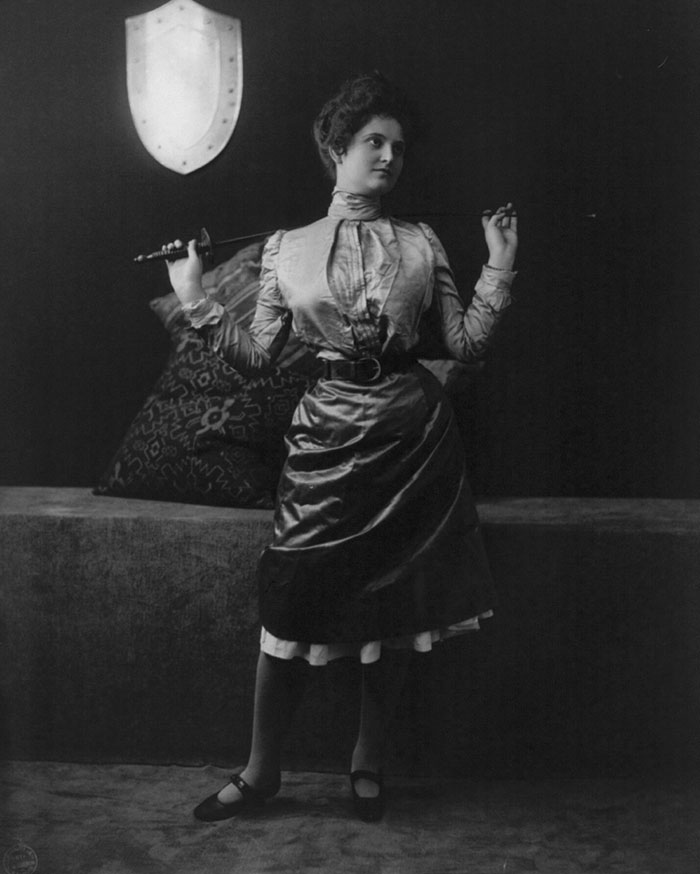
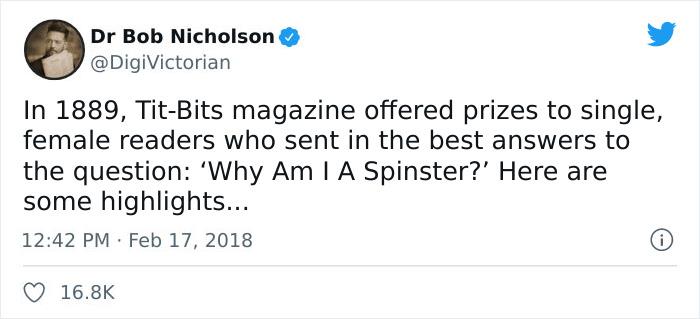
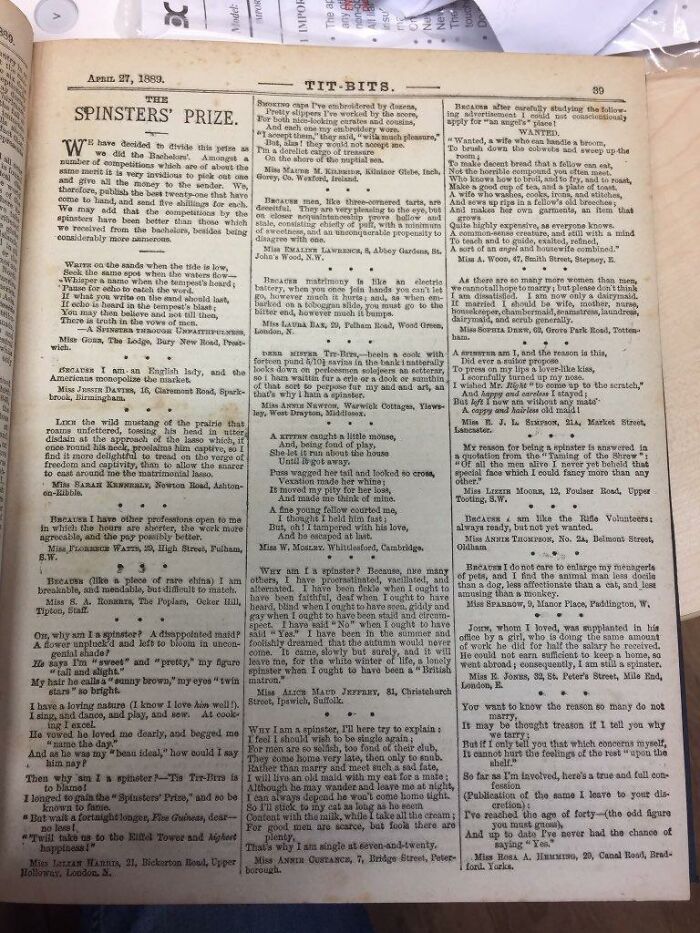
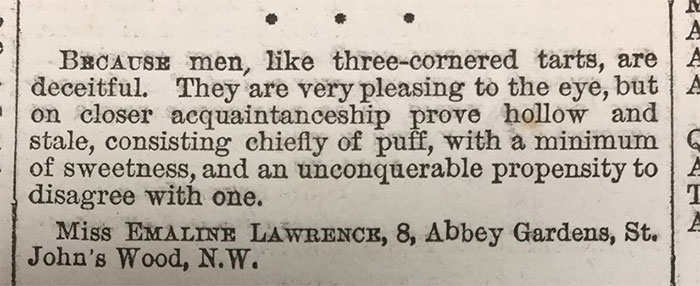
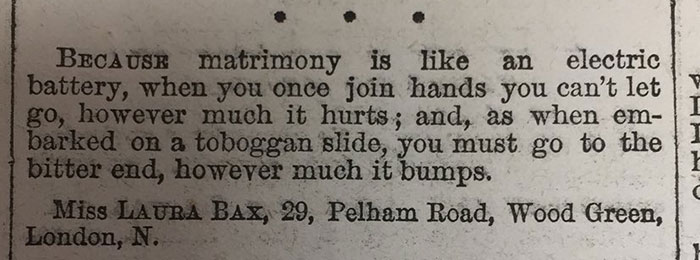
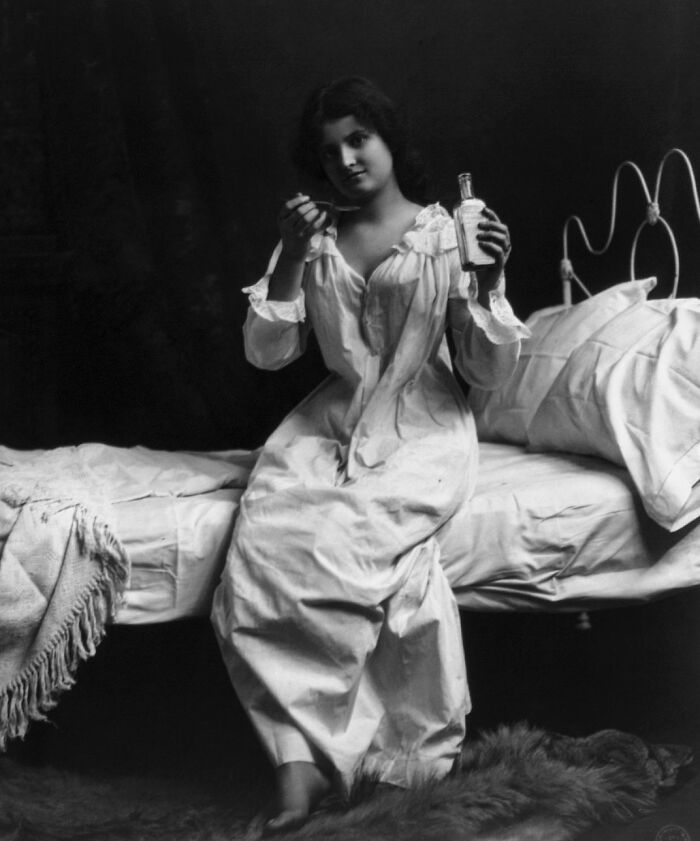
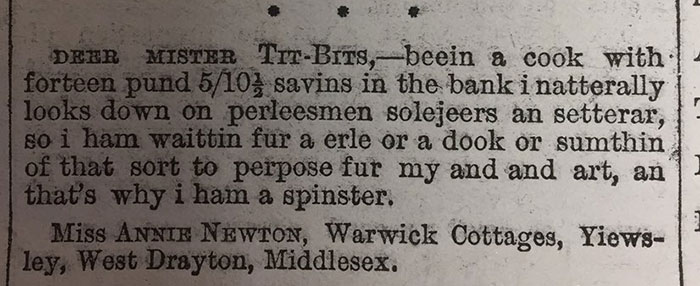
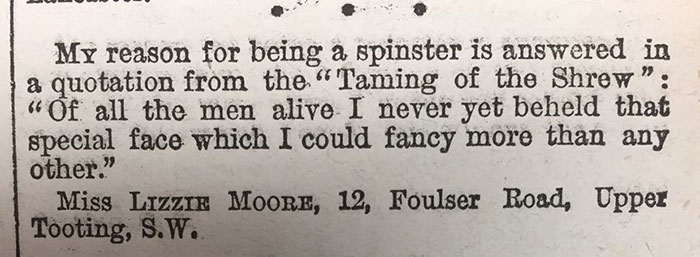
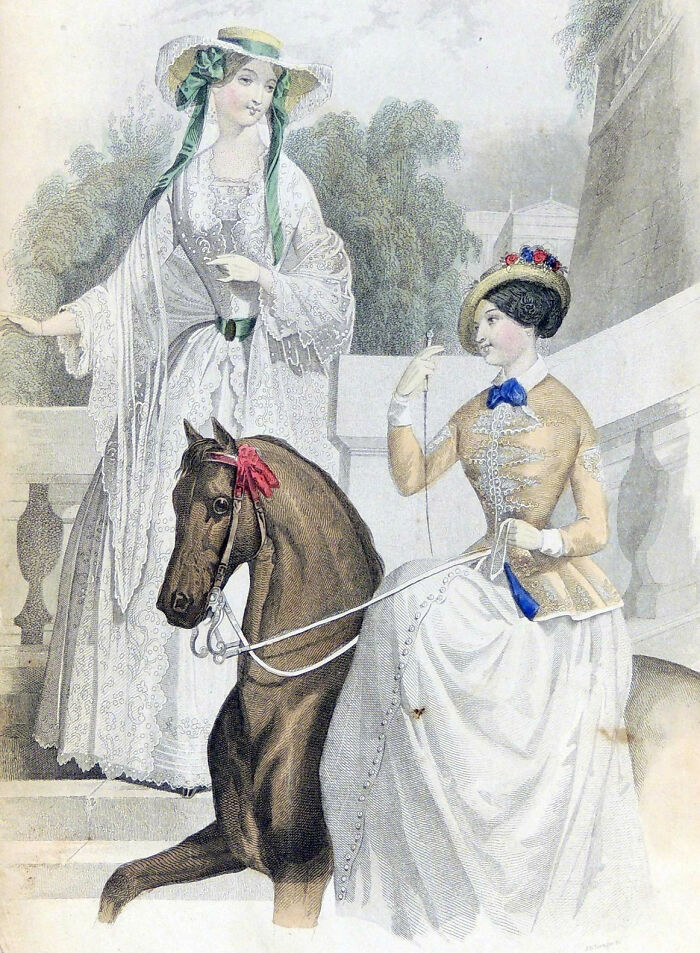


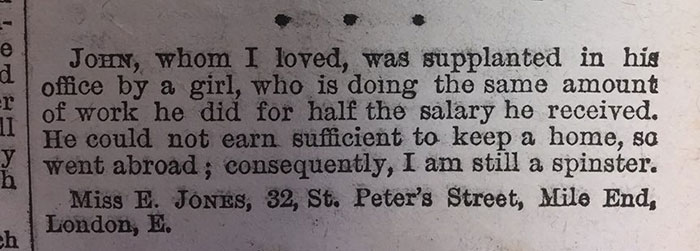
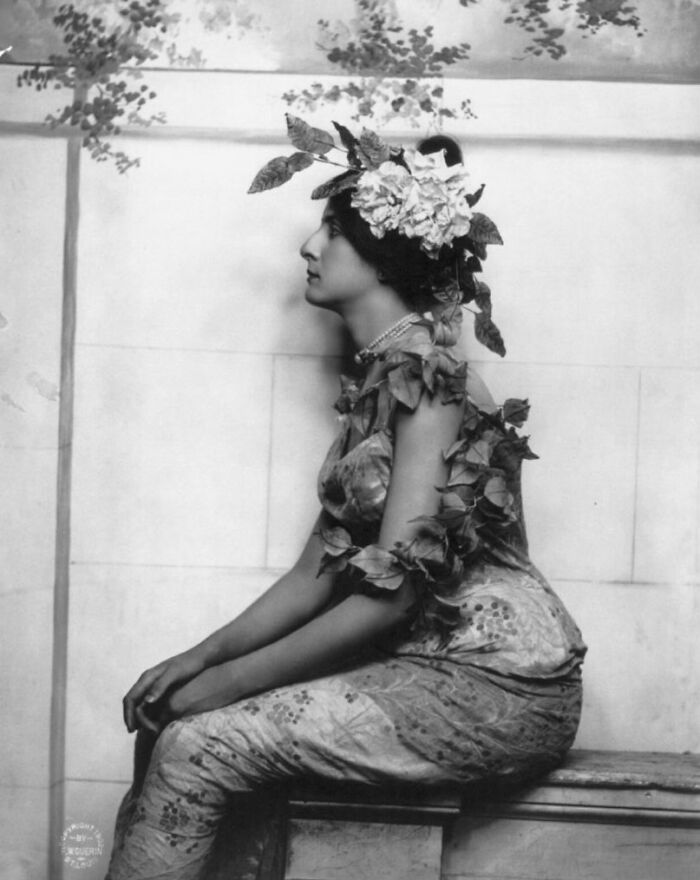

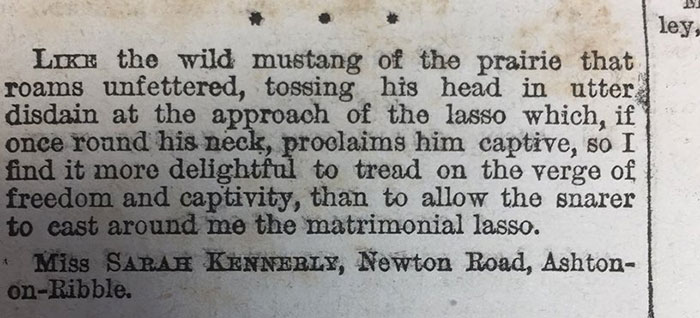
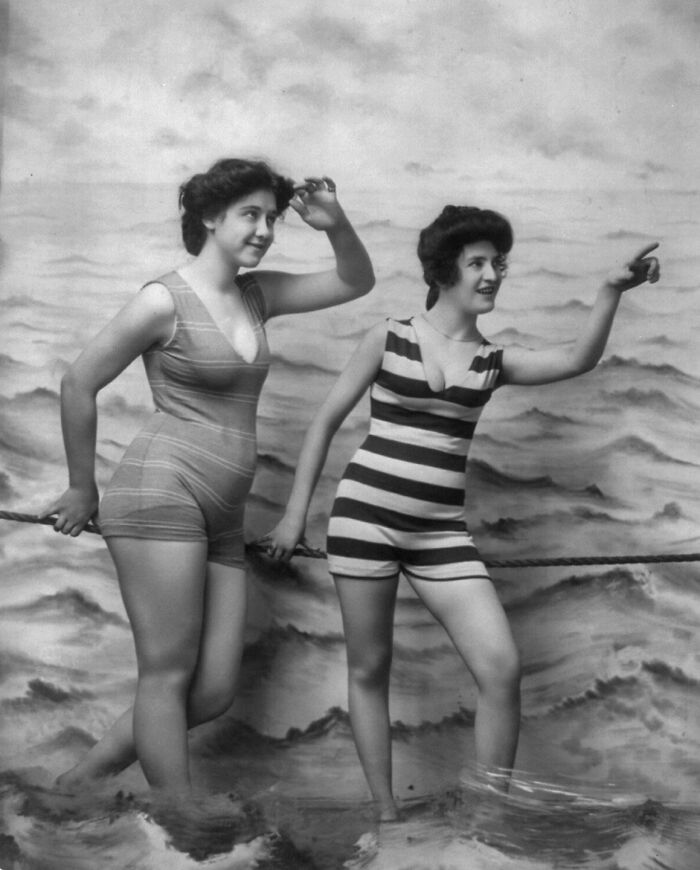


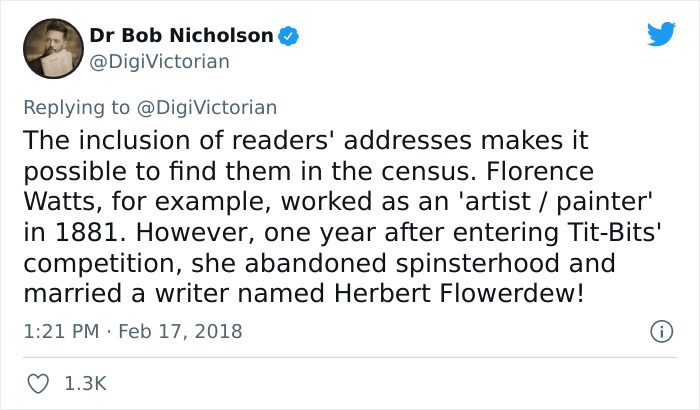
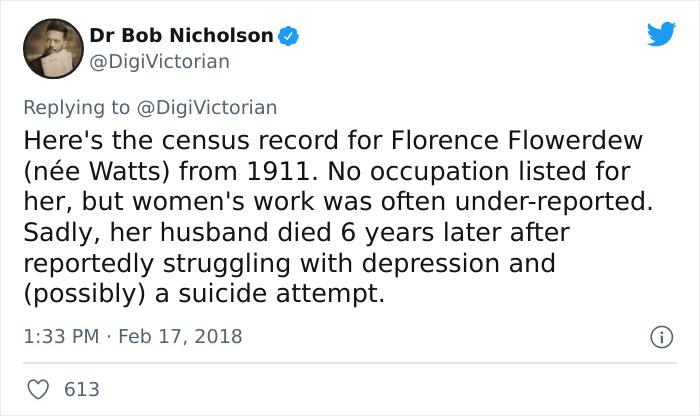
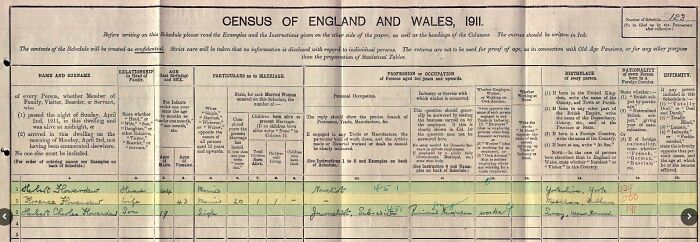
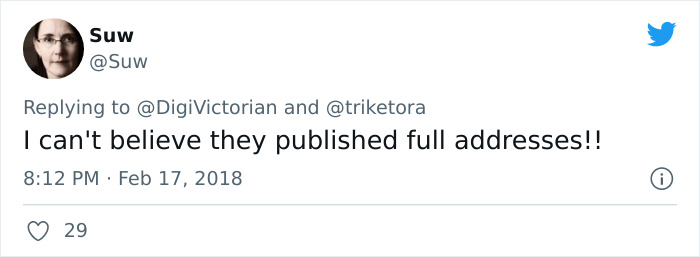
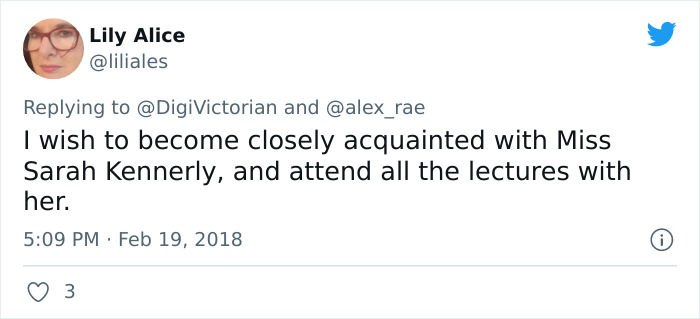
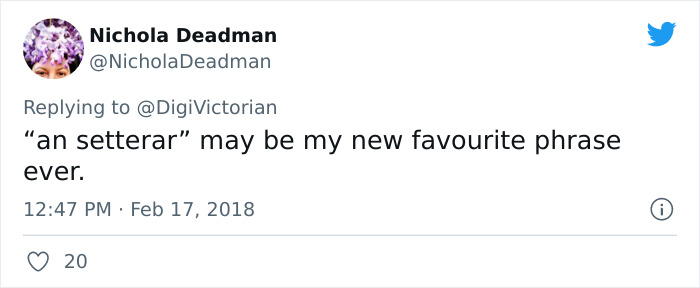
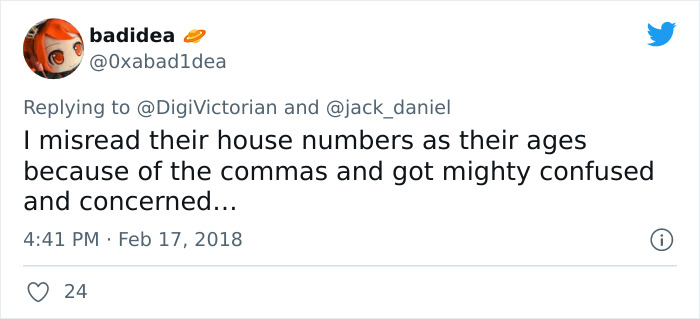
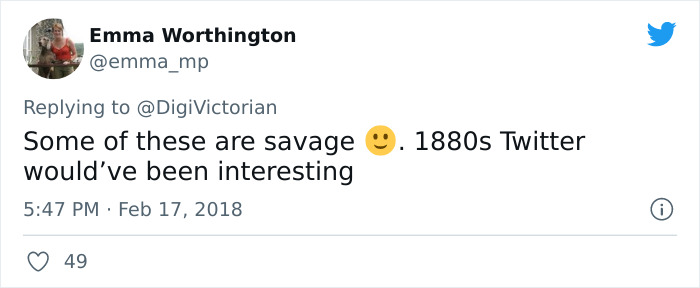
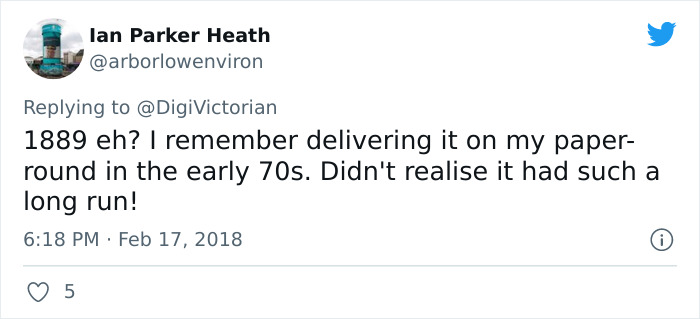
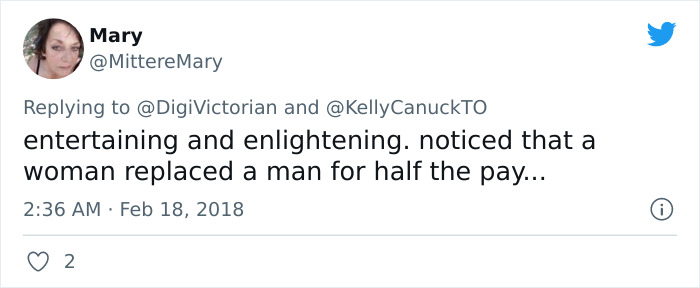
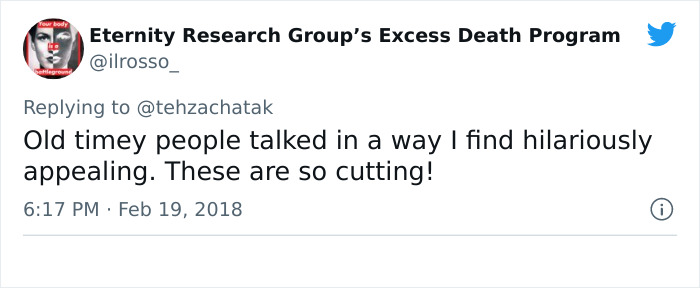












































242
87